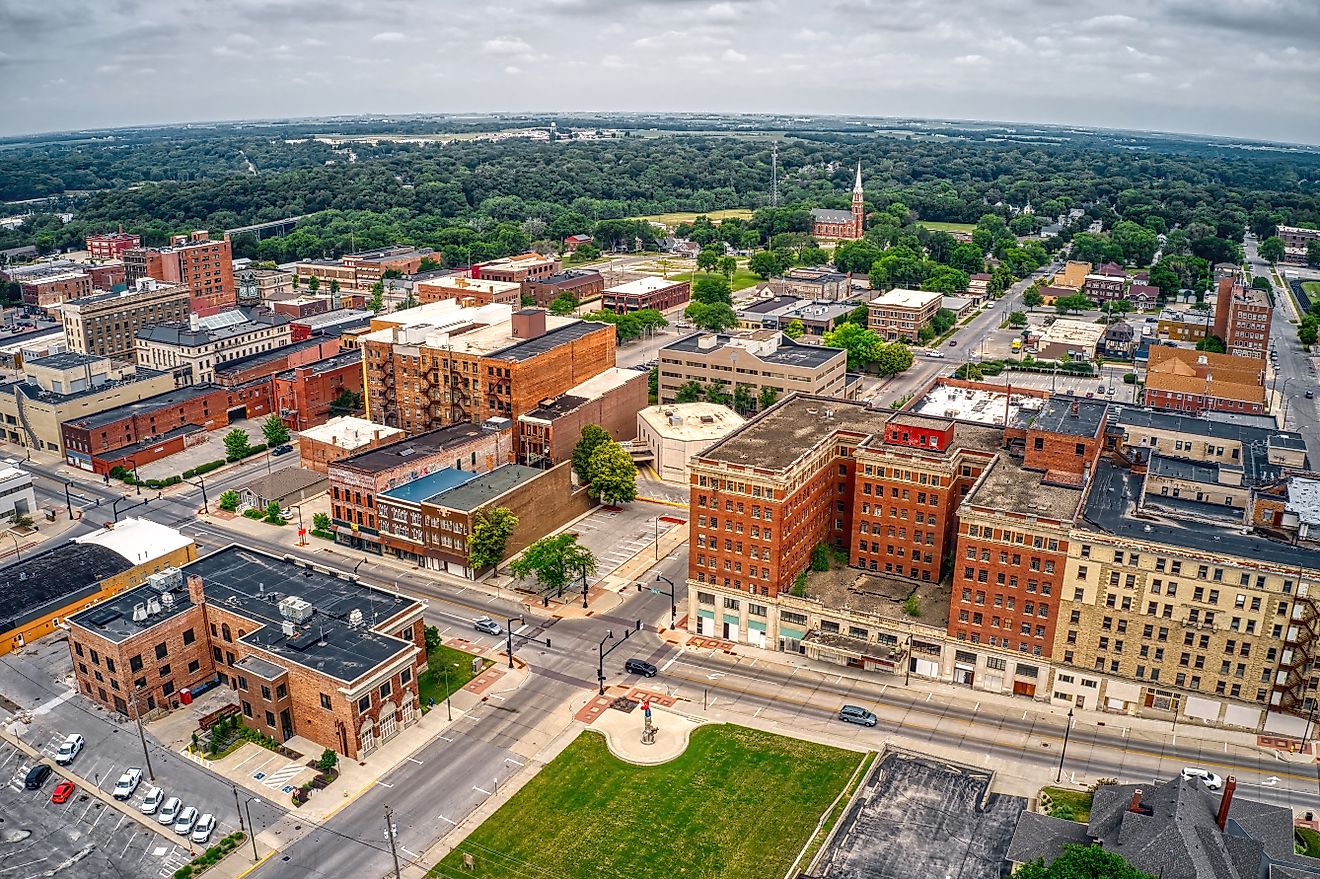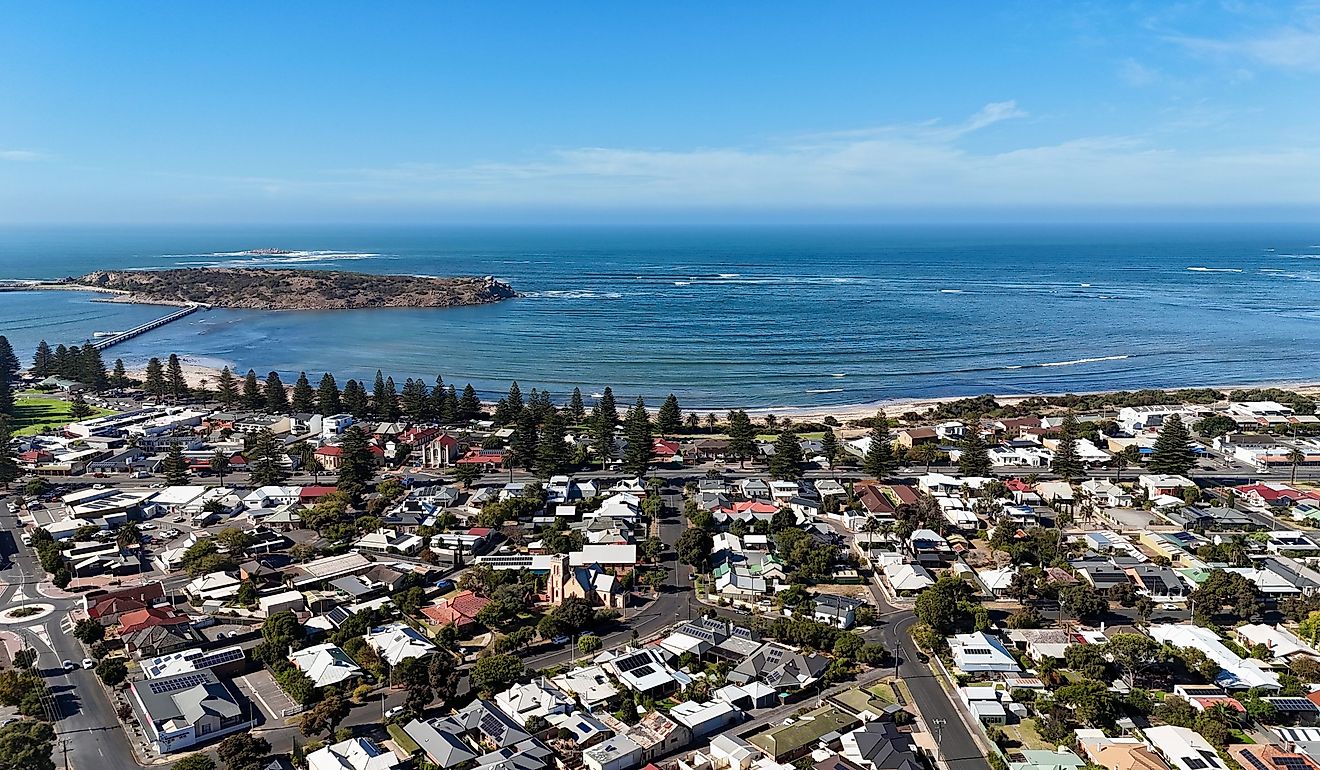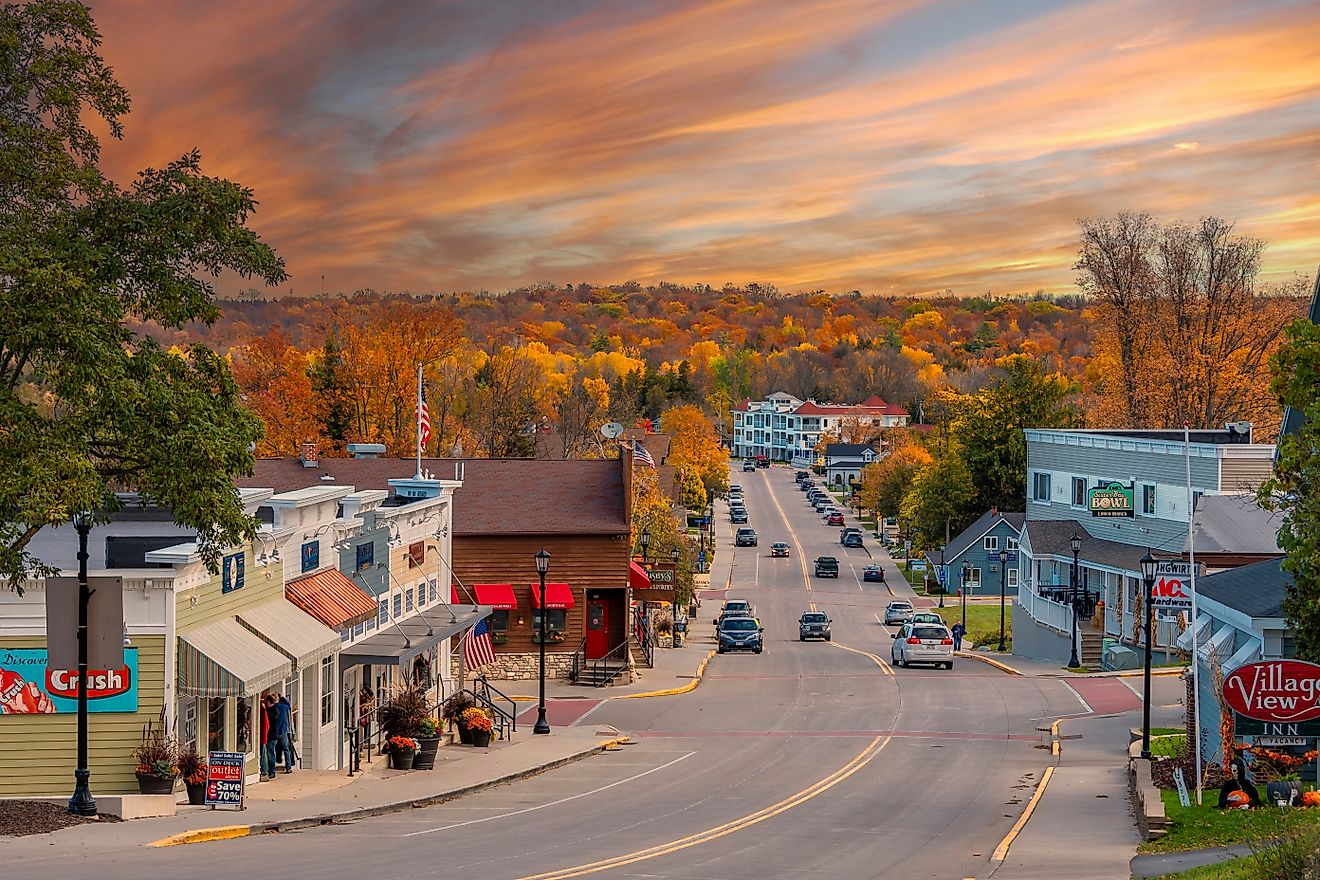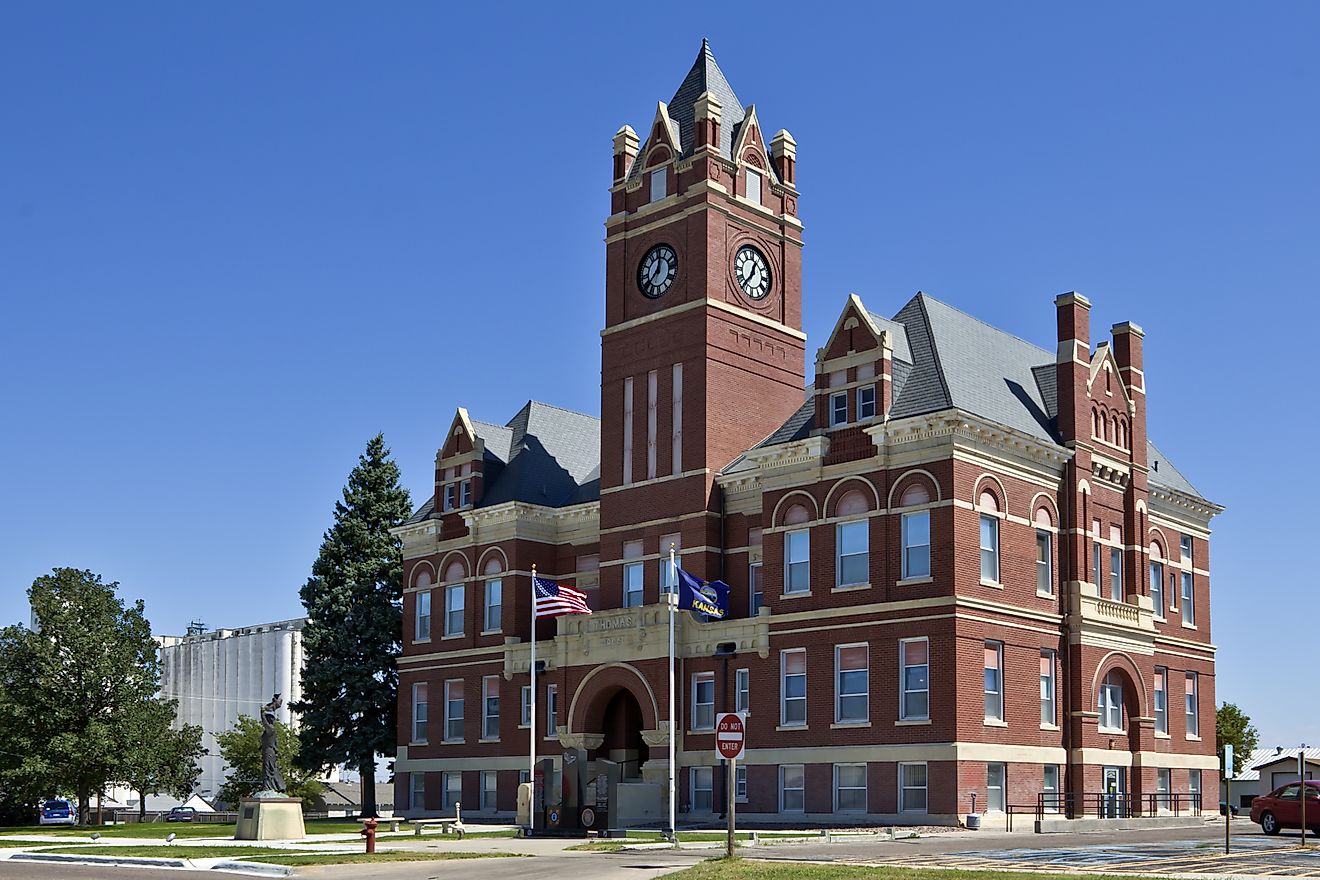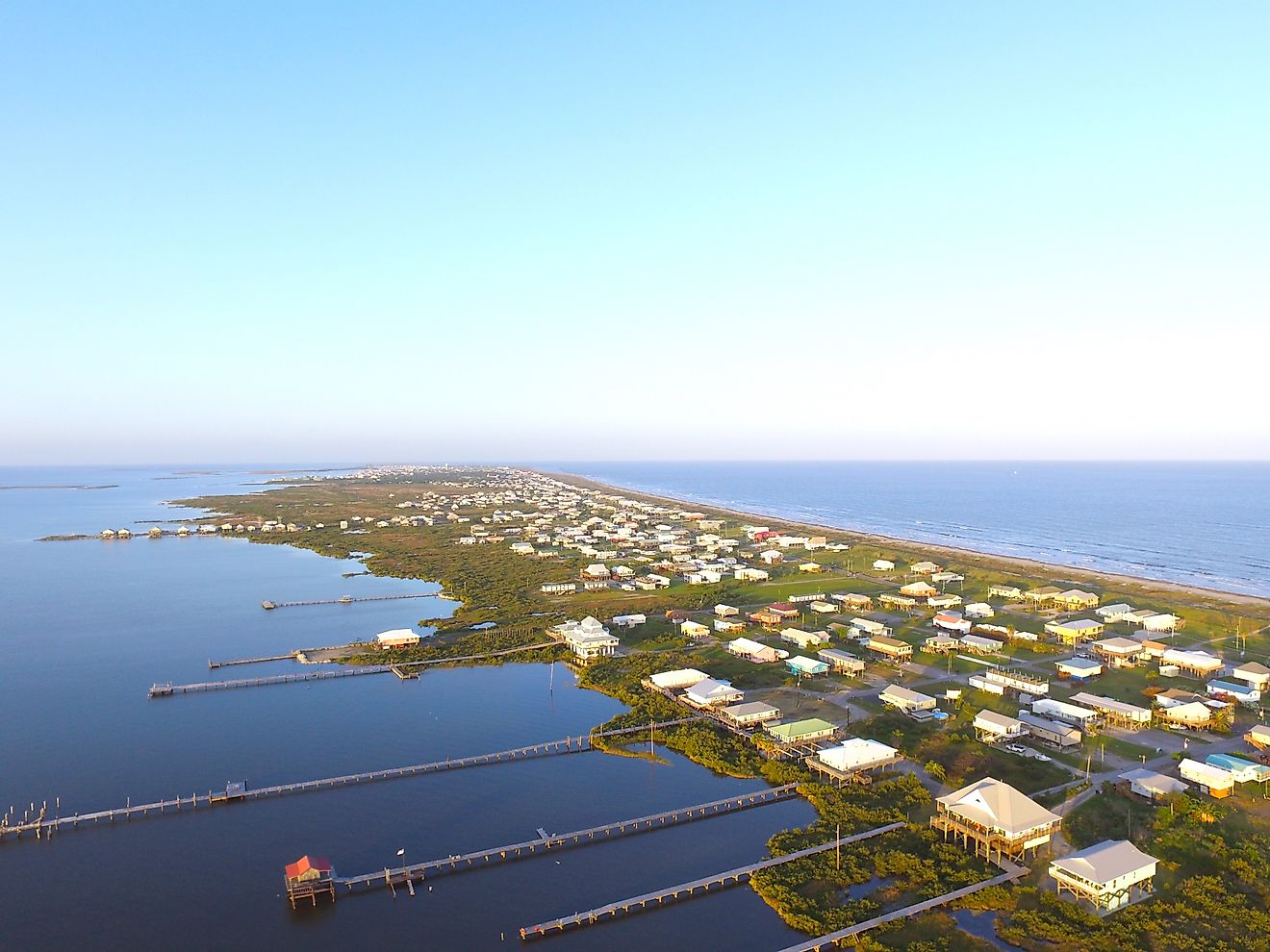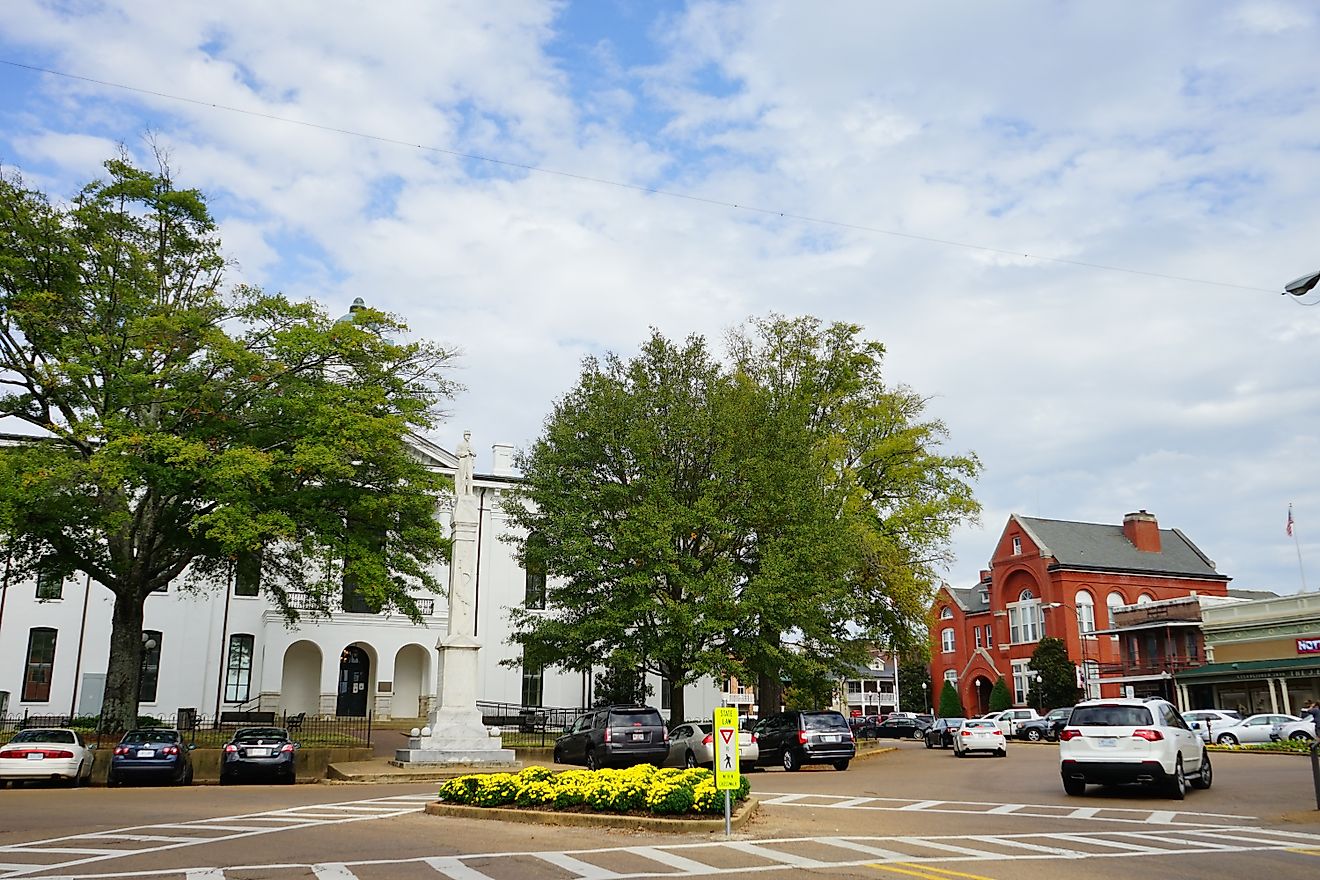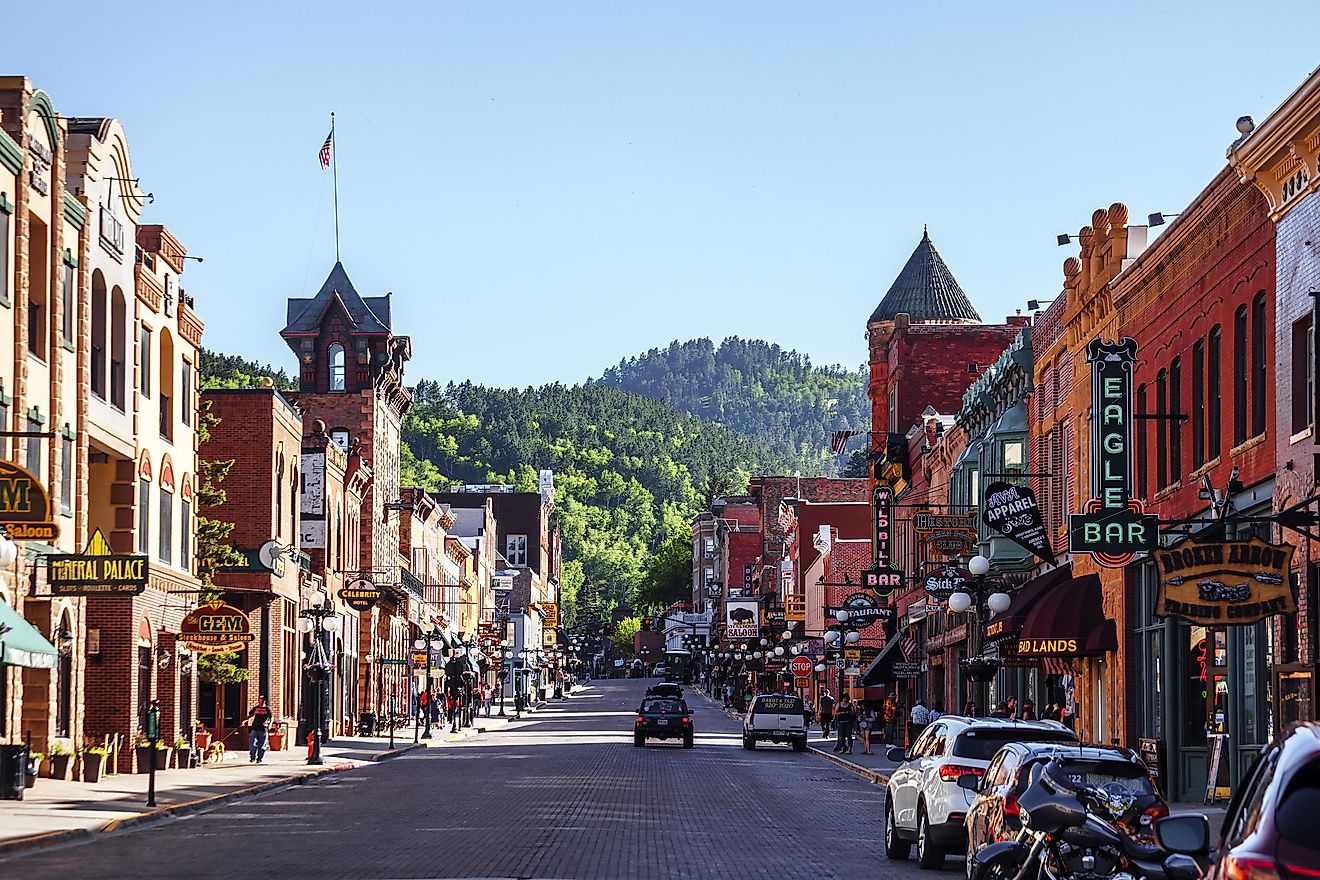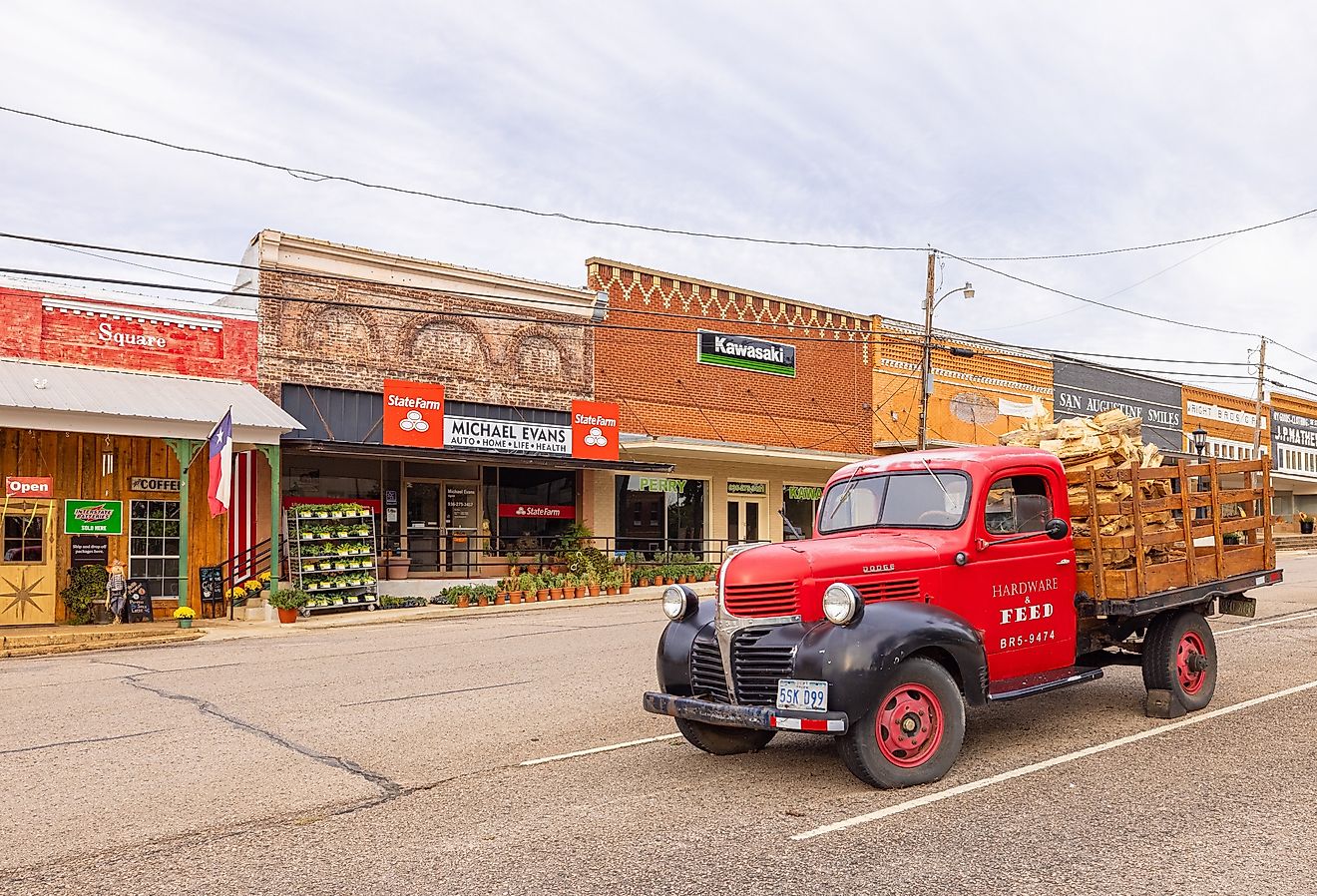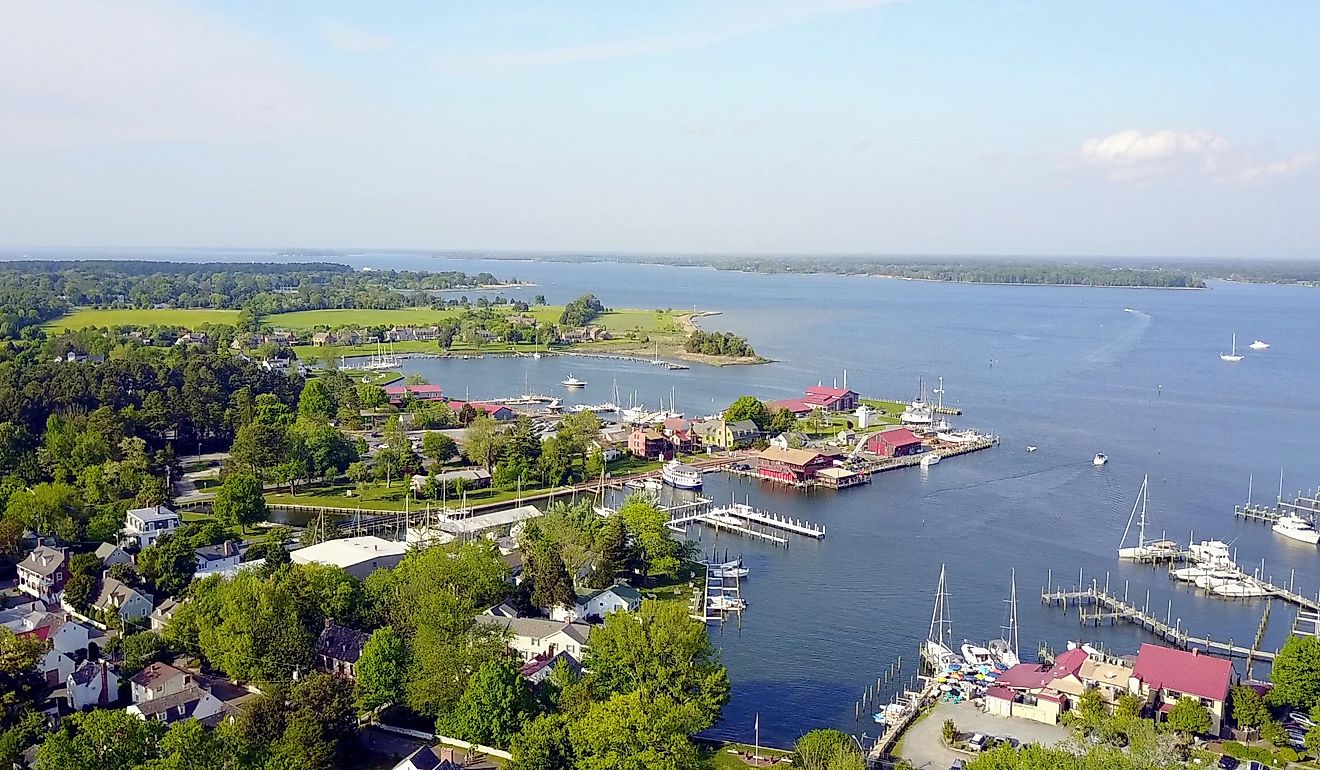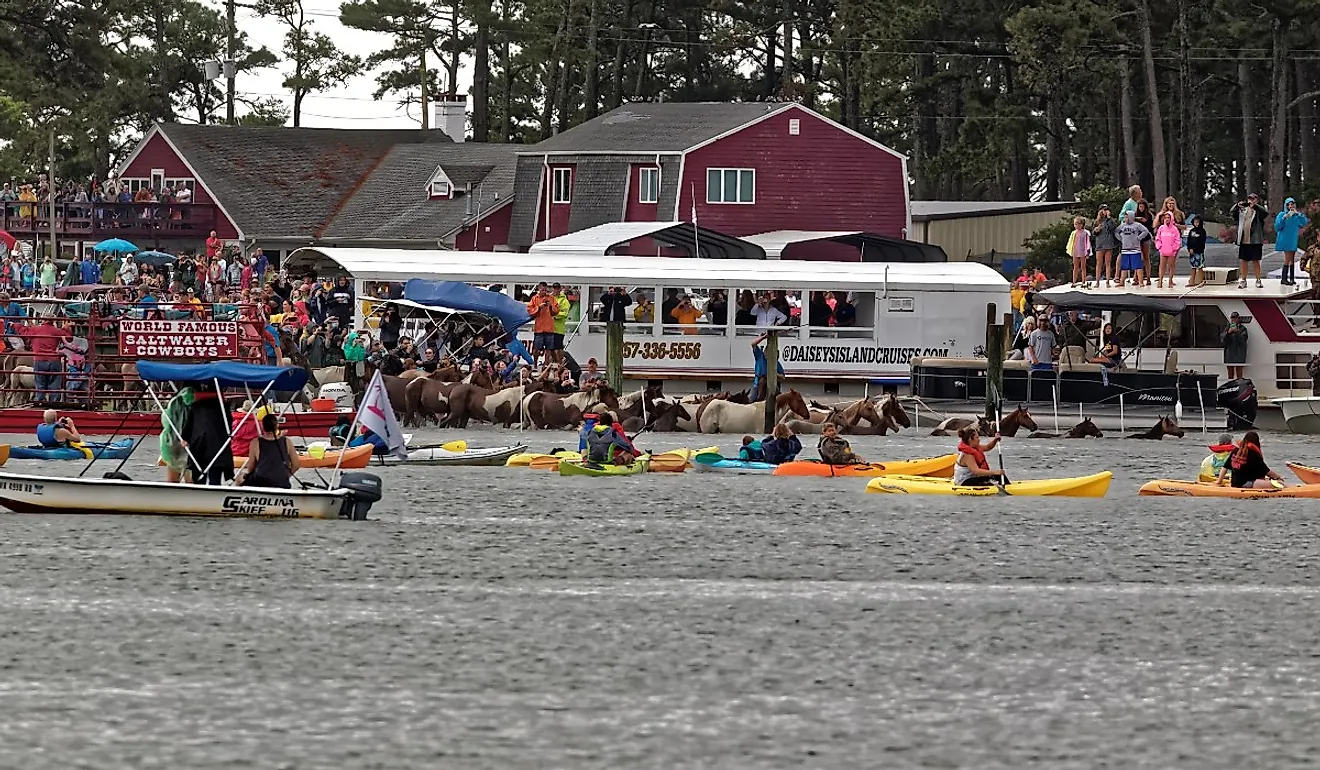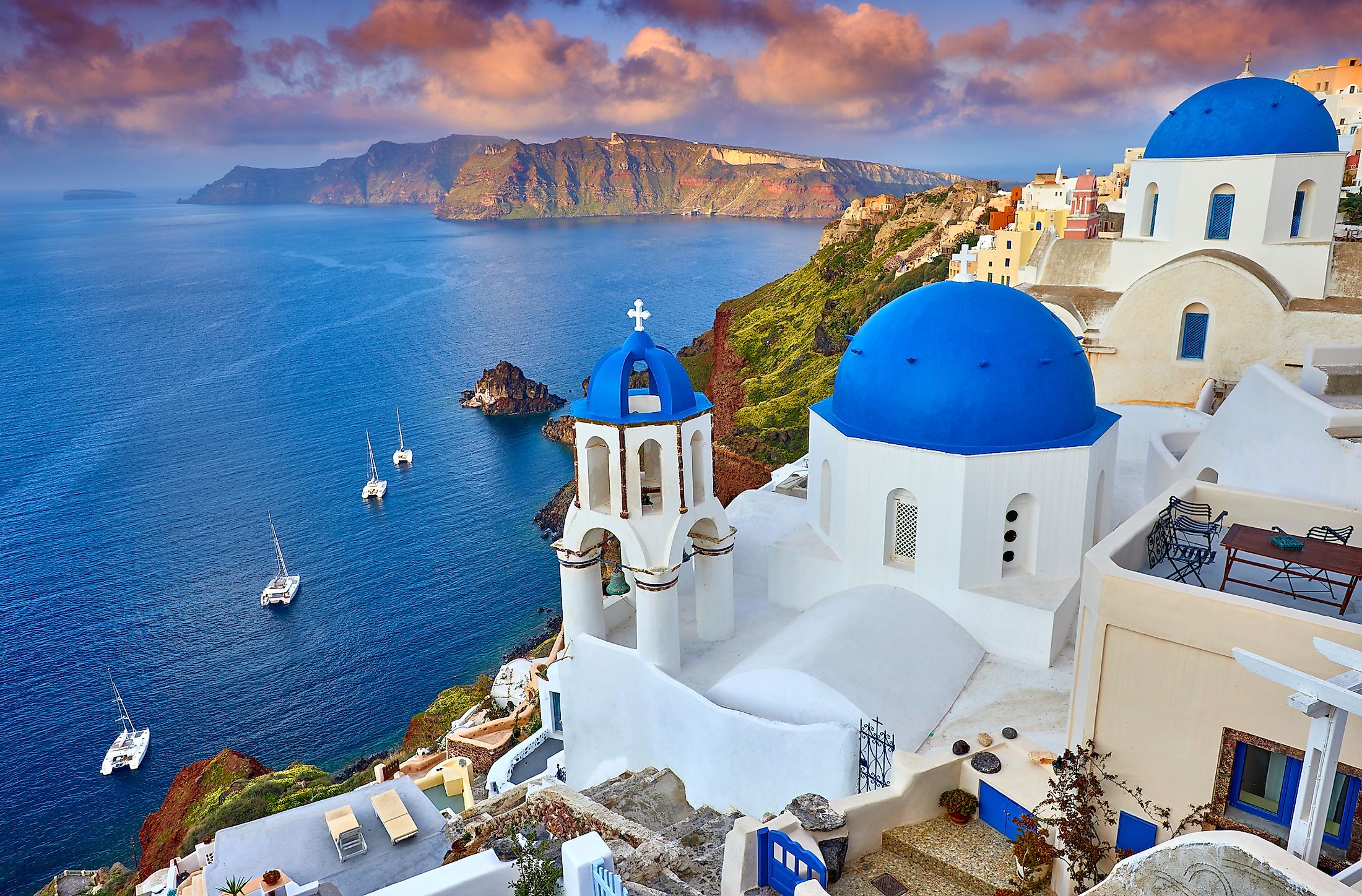
The 10 Best Greek Islands To Visit
Depending how one counts, there are more or less some 1,500 islands in Greece, including loners, inhabited, and epicenters. The following are the best islands to visit, most of which come with unforgettable beaches and captivating Greek mythology behind their origin.
Corfu

Corfu or Kerkira in Greek, the best of the country's islands for its character, lush landscapes, olive oil, figs, oranges, lemons, and wine, covers an area of 229 sq. miles (593 sq. km) and contains some of the best beaches in Europe. Settled by the Corinthians 734 BC, 70 years later, the first naval battle in the history of Greece was fought between Corfu and Corinth just off of its naval cost. With the aid from Athens 435 BC it was able to wage the war against the Corinth a few years later, known as the Peloponnesian War. Prior to being ceded to Greece in 1864, Corfu was under British administration from 1815, but would switch hands between Germans and Italians in the Second World War.
Reminiscent of Tuscany, the pastel villages, including the atmospheric Agni with three rivalling taverns, the endless countryside of rolling olive groves and grand manor houses, all contribute to the island's charm. Even the famous British novelist, poet, dramatist, and travel writer, Lawrence Durell, fell for its idyllic bays in the 1930s. The inland, the enchanting Ambelonas, is complemented with a winery and a world famous, for its roast pork with quince and crème brûlée with Corfiot kumquats, restaurant. One can also forego participating in the wet T-shirt contests in Kavos to sip on drinks on the Liston colonnade upon dining at a bistro wine bar at the edge of the Old Town.
Crete

The largest island, Crete is best known for its ancient ruins, antiquities, active adventures and, with the sunshine all year round, the beaches. As a rugged, long and narrow at 160 miles (260 kilometers) by 7.5 to 37 miles (12 to 60 kilometers), Crete, one of the country’s 13 administrative regions sits in the eastern Mediterranean Sea. The snow-crested mountains form its backbone, with Mount Ídi (8,058 feet or 2,456 meters), as the bearing place of Zeus, according to Greek mythology. It was among the first places in Europe to experience the arts and sciences of ancient Egypt and Asia, while Sir Arthur Evans, an English archaeologist, uncovered ruins of a great palace in the early 1900s, left from the thriving and highly developed civilization 5,000 years ago.
Sightseeing and other forms of rambling about is best reserved for mellow springtime, including the Minoan palace of Knossos, and ancient sites such as Aptera and Malia. Samariá, a popular 16km-long gorge for explorations, is just one of the 50 canyons on the island to explore, including the Aradena Gorge in the wild and rugged Sfakia region, known for offering an unforgetful hike to Marmara, which is a translucent cove on the Libyan Sea. There, one can round-out the hot day with for a cooling dip complete with a meal at Dialiskari Taverna, of Crete's finest goat, rabbit and smoked-pork dishes. As Greece’s leading producers of olives and olive oil, grapes, vegetables, oranges, and carob beans, the island also produces first class cheeses, honey, and olive oil.
Folegandros
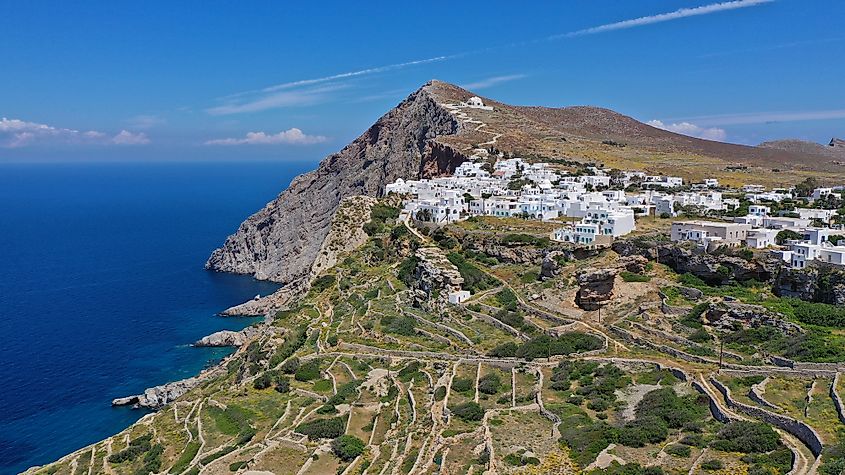
Sitting between Sikinos and Milos, this small, long and narrow island on the southern side of Cyclades, with a hill-top capital, Hora (Chora) and Ano Meria, the second largest village, Folegadros is a non-pretentious island, best for an authentic bohemian vibe, offering what it's got with no shame. Meaning "iron hard" in ancient Greek, instead of the sandy beaches, one gets a foot and back massage on the pebbly ones, known for their exceptionally clean waters all year-round. Exploring the coves such as Georgitsi, and Chrissospilia (Golden Cave) full of precious stalactites and stalagmites connected to the island's history, tasting a whole grilled octopus on a horizon-aligned deck in the rocks above Agios Nikolaos bay, or a matsata, a goat or rabbit stew with hand-made pasta, the island's specialty in Ano Meria, are all experiences to cherish.
Hora, floundering not one, but three main squares, all with brimming cafes, taverns and raki bars, Folegandros promises to be an unforgetful visit from the breath of its atmosphere. A must stop for a unique coffee or yogurt experience that leaves one with a souvenir to take with, is at Pounta, a Danish-owned cafe where one's choice of drink is served in a lopsided cup, made by the owner himself. Another must-do, is to follow the steps up and away from Hora, which will bring one to a beautiful vantage point with the church of Virgin Mary, The Panagia, a cliff-hanging spectacle most mesmerizing at sunset.
Hydra

Under two hours from Athens, Hydra sits just off the eastern tip of the Argolís peninsula, with a maximum, northeast-southwest length of 13 miles (21 km) and Mount Ere at 1,936 feet (590 metres) as its highest peak. Although there is almost no arable land and barely any beaches, with water being shipped from the mainland, when in Greece and looking for a long weekend with the art crowd, Hydra, the home to Dakis Joannou, Greece's foremost art collector with a camouflage-painted yacht, and the author of the ever-changing designs of the local slaughterhouse, is the destination island. Completely void of cars, as a preservation order, and with even the school being reserved for exhibitions during summer, the art scene of the island began with Leonard Cohen in the 60s and alongside Joannou, Brice Marden, Sadie Coles and Juergen Teller also reside there.
Known for its naval power throughout history, it was a deciding factor in winning many feats against the Turks during the War of Greek Independence in 1821. With the invention of steamships, only a handful of small ports remain from this naval empire, including the north coast Mandrákion, Mólos, and Panayía, while, the chief town, Ídhra with narrow, rock-cut streets that surround a sheltered harbour, is the center of international tourism, a residence of a metropolitan bishop, as well the year-round hibernation spot of artists and writers. The vast, grey, stone mansion of The School of Fine Arts overlooking the horseshoe harbour, is a must-visit, while the consistent rehearsals and recordings at the 18th-century residence, known as the Old Carpet Factory, are a must-hear.
Ithaca

The two connected land masses by a thin peninsula, Ithaca, or Itháki in Modern Greek, is the second smallest island of the seven main Ionian Islands in western Greece. The birthplace of Odyssey, hero of the ingenious Homer, Ithaca is known for its mythical vibe. Ithaca was ruined but rebuilt after the 1953 earthquake. Barely arable, it imports grain from the mainland, although it produces some of its own olive oil, wine, and currants for world-wide export. Popular among the dreamers, it is the place where the loners and the lovers find their sanctuary, complete with turquoise and emerald coves to sail into and forested hills to wander about.
For the history and mystery fanatics there are the ruins of Odysseus’ palace from the 8th century BC, or paying a visit to the Byzantine frescoes-covered church of Anogi inclusive with asking for its key from the village's coffee shop. Spavento offers scrumptious ice-cream sundaes and excellent cocktails with the soundtrack to set the mood. Frikes, a atmospheric fishing port with drowsy sea-side taverns and the small pebbly beaches surrounded by refreshingly clean waters, make Ithaca as bare and unspoiled and as it gets. Another place to forget the world is Vathy, a sheltered harbour town with a mischievous vibe, sitting protected at the head of a deep and narrow horseshoe-shaped inlet of a gulf, as if also seeking solitude.
Lésbos

Lésbos, Lésvos, or Mitilíni is a triangular and second largest island on the Aegean Sea, with Mytilene (Mitilíni) as its chief town and seat of the Greek Orthodox bishop. As one of the earliest Aegean settlement, it has a historically geological relation to the Asia minor's coast, from which, it is separated by two shallow channels 6 to 14 miles (10 to 23 km) wide, forming the entrance to the Turkish Gulf of Edremit upon joining together at the apex of Lésbos. With most people living in Mytilene, a port town connected to Lésbos by a causeway, the region west of Kalloní is well preserved with original vegetation of the area. The mountain Lepethymnus (Áyios Ilías) peaks at 3,176 feet (968 metres), while the many thermal springs in the west of the island signal high volcanic activity
Theophrastus, Aristotle’s successor and the philosopher of the 4th and 3rd centuries BCE was born in Eresus on the southwest coast. Fascinatingly, Sappho, who was born on the island and her ventures have contributed to erecting the island with the name, so close to the word for female homosexuality. Many earthquakes have taken place in the island's past, even destroying Mytilene in 1867, and leaving little of the original ancient ruins on the island to explore. Although these facts only scratch the bottom of the island's historical barrel, today it is the island of fertile plains and valleys that yield juicy grapes, golden cereals, and its, most proud export, olives.
Mykonos

Sitting next to Delos (Dílos) between Tínos, Náxos (Náchos) and Páros, with its north coast Gulf of Pánormos forming a deep dent, Mykonos offers beaches of the South Aegean Sea, as one of the smaller islands of the eastern Cyclades, but with one of the biggest personalities. Mythology states that Mykonos, a rugged granite mass some 33 square miles (85 square km) in area, is a small rock thrown by Hercules to destroy the Giants. Dionysus-worshipping Ionians were the first settlers on the island, followed by Athenian influence, Frankish period, and the rule by the dukes of Naxos, before it got attached to Venice. Affected by the Greek War of Independence, the islanders with Manto Maroghenious in lead were able to resist the Turkish forces.
The capital, Mýkonos town on its west side thrives with tourism and renowned nightlife, while local specialties include colourful hand-woven garments, napkins, and rugs, as well as the amygdalota delicacy, an almond cookie known all over Greece. The bohemian vibe of the 60s on the Mykonos island is complete with the world-recognized decadent sunrise parties and raves on famed beaches, while the influx of celebrities and supermodels, has led to the expansion of five-star hotels, restaurants, gay clubs, and personal trainers. For seclusion, there are tavernas overlooking Agios Sostis bay, or Delos, a tiny island and archaeological sanctuary that still carries the essence of the 30,000 sun worshippers from the past. A must see is the main, four-chapeled Rococo church of Paraportiani on the seashore, with curved vaults and coloured cupolas.
Paxos

Just south of Corfu, the exquisite Paxos, one of the smallest Ionian Islands, is a known cultural hub and the best place to get a taste of sophistication in a secluded environment, home to only 2,500 people. With three atmospheric harbor towns, Loggos, Lakka, and the main port Gaios, the latter one is favored by the stylish Italians who stroll along the streets among the complementing Venetian architecture and own the pale stone villas on the limestone cliffs along the western shoreline. It is part of a European network “Cultural Villages of Europe", with Italian dialect on the streets, and the red-tiled roofs and glowing peach-painted buildings. When in Paxos, one can enjoy calm strolls on the paths through vineyards and orchards descending into bays with electric blue sea.
The mythology states that Paxos was created by Poseidon, who, upon wanting to enjoy some alone time with his wife, Amphitrite, stroke Corfu with his strident to split it into these numerous shells. Famous for wines throughout its ancient history, this gathering of tiny islands that comprise Paxos, were fought over in the First Illyrian War, 229 BC, and until the chafing between the inhabitants and the British led to an independence movement, ending in successfully joining the new nation of Greece, in 1864. Aside from intriguing history, Paxos offers a vibrant art scene, including classical music, best known for putting on concerts in a spectacular natural setting and under the patronage of The Guildhall. The active can explore Marmari and Kipiadi, the enchanting pebble coves.
Rhodes

The largest of the Dodecanese of south-eastern Greece, Rhodes or Ródos in Modern Greek is separated by the Strait of Marmara from Turkey as the most easterly island in the Aegean Sea. Following the devastation of the Second World War fragmenting Rhodes into countless pieces, it rebuilt itself in less than half a century to become one of the world's top tourist destinations. One of the main attractions, the medieval citadel in Rhodes Town is composed of Byzantine churches, Roman ruins, synagogues and minarets, while the maze of alleys will eventually lead one to the famous 15th-century harem-styled guest-house, Marco Polo, inclusive with an enchanting garden restaurant. The chief town, Lindos, sits within magnificent cliffs among enchanting emerald coves, while the south beachfront contains golden stretches of Glystra, Tsambika, and Fourni sands.
The island is traversed by hills, the tallest of which is the summit of Atáviros at 3,986 feet (1,215 metres), while the capital and the namesake of the island sits on the northern tip, as the largest South Aegean city. Upon hiking Atáviros, one can marvel at the coast of Asia Minor and the Dodecanese archipelago. Historically infested with snakes, against which the farmers to this day wear tall boots, the island's name may have derived from this phenomenon with “erod” being Phoenician for “snake.” The hilly geography inland offers Mount Attavyros with alpine forests, hilltop castles in the village of Monolithos, and the ancient ruins of Kamiros. The valleys serve as rich pasture, while the plains are highly yielding of many grains.
Santorini

Although most know this famous Greek island as Santorini, just as many know it by its former name, which is Thera. It was also called Calliste (“Most Beautiful”) in its ancient history, having been occupied even before 2000 BCE. Chosen by honeymooners and first-time visitors in Greece, they all pose to get a picture in front of Santorini's volcano at sunset. A romantic cliché on one hand, the volcano destroyed the island 3,500 years ago, causing many to believe that doomsday has arrived. In reality, the layers of ash perfectly preserved the ancient city of Akrotiri and added fertility to the ground to produce finest Assyrtiko grapes and Vinsanto wines. The black sands and head-spinning cliffs remind people of that electrifyingly tragic time that can be reminisced about during a boat trip to the Nea Kameni smouldering crater or the Palia Kameni hot springs.
Thera is in essence, the remaining eastern half of the once-exploded volcano, inclusive with a bow-shaped rim and remnants of Thirasía and Aspronísi isles forming a lagoon with two active volcanic islets in the middle, Néa Kaméni (“New Burnt Island”) and Palaía Kaméni (“Old Burnt Island”). The striped red, white or black volcanic cliffs reach almost1,000 feet (300 metres) in height hugging the lagoon, while the summit made of limestone, Mount Profítis Ilías, sits at 1,857-foot (566-metre) in the southeast of Thera. The south of the island has preserved some of its natural charm, a perfect getaway for solitude-seekers for discoveries and self-reflection.
One can't go wrong about choosing any of the above islands, as there is never a lack of activities, bars, and natural wonders. Island-hopping, on the other hand, will allow one to taste every side of the true Greek atmosphere, which is present on all of them.
